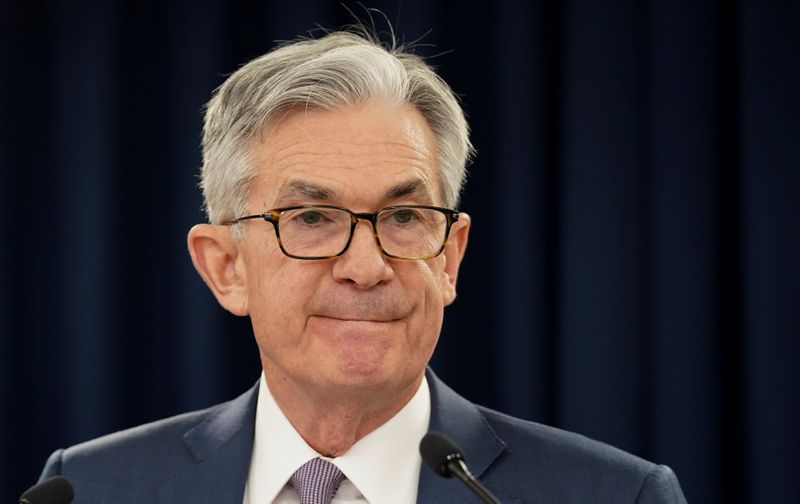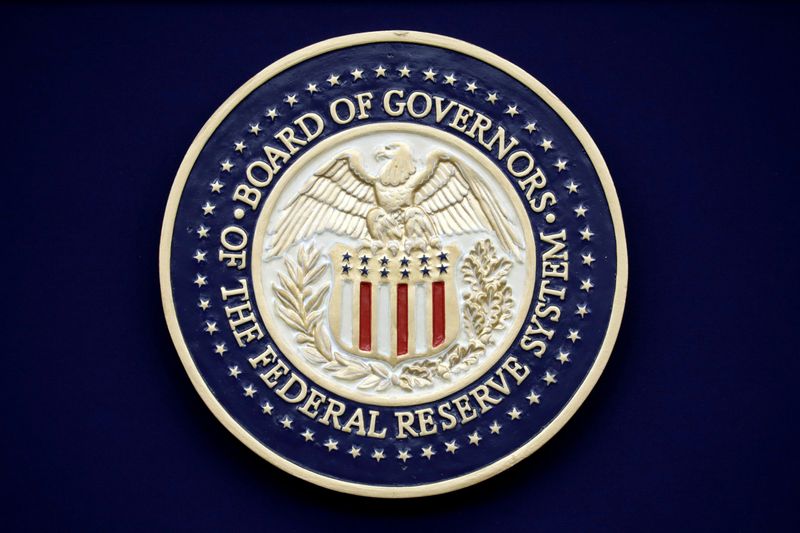By Howard Schneider and Lindsay (NYSE:LNN) Dunsmuir
WASHINGTON (Reuters) - The U.S. Federal Reserve on Thursday widened a key program to nurse the "Main Street" economy through the coronavirus pandemic, agreeing to lend to even larger firms, taking on more risk in participation with banks, and hinting at some form of dedicated help for non-profits.
The central bank said it would open its "Main Street Lending Facility" to companies with up 15,000 employees and $5 billion in revenue compared to an initial program limited to those with 10,000 workers and $2.5 billion in revenue when it was announced on April 9.
The size of the program will remain the same for now with $600 billion in loans available on the basis of $75 billion from the U.S. Treasury at risk for any losses - an amount set by the Fed to insulate it from any loans that go bad.
But the changes, the Fed said, aimed to capture what it saw as an important group of companies that are major employers but not large enough to access the public bond and capital markets used by the biggest firms. According to U.S. census data as of 2017 there were 2,364 companies with between 10,000 and 20,000 employees, including 436 management firms and 233 in professional and technical services.
Other changes to the program, including a clearer statement that firms can lay off workers and allowing some participants to hold more overall debt, were made after some 2,200 businesses, individuals and non-profits wrote the Fed with suggestions about how to tailor the central bank's unprecedented efforts to best support the "real economy."
The National Retail Federation, its members hit hard by social distancing rules, was among those that asked for changes and on Thursday said it "welcomed the Federal Reserve’s decision to allow larger midsize businesses hit by the coronavirus pandemic to participate."
Other changes, including giving banks more leeway in deciding some of the accounting metrics for the loans, giving companies berth to make "commercially" necessary layoffs, and allowing firms to use the Fed loans to pay off other debts in some cases, were requested by business groups including the U.S. Chamber of Commerce and the oil and gas industry.
Minimum loan sizes were trimmed from $1 million to $500,000, and the maximum could extend up to $200 million in some cases, from $150 million previously.
What the Fed framed as an effort to make the program as useful as possible in offsetting the economic impact of the pandemic, however, was seen elsewhere as too indulgent.
Bharat Ramamurti, a former aide to Democratic Sen. Elizabeth Warren aide now on a Congressional panel overseeing the various economic emergency programs, said the program's expansion "raises questions about how the changes promote the broader public interest -- especially when these companies will still have no real obligation to retain or rehire their workers."
Firms getting the 4-year loans from the Fed will have to make "commercially reasonable efforts" to maintain employees - a change from the "reasonable efforts" demanded previously. The Fed said the aim was to encourage participation by not setting too many restrictions, and to avoid terms that might weaken firms that were struggling. Payments on the loans can be deferred for a year; interest is set at 3 percentage points above the London Interbank Offering Rate.
The expansion of the Main Street program marks the latest move by the Fed to broaden the safety net it has built with the Treasury to try to keep the economy stable as health officials battle a global pandemic (for a graphic of those programs: https://graphics.reuters.com/HEALTH-CORONAVIRUS/USA-SAFETY-NET/rlgpdwwjjvo/index.html)
In a matter of weeks the U.S. economy has gone from historically low unemployment to seeing more than 30 million people file for unemployment benefits. It has suffered the sharpest plunge in activity since the 2007-2009 Great Recession, as authorities across the country shut down large swaths of industry and commerce to slow the spread of the novel coronavirus.
The Fed has already slashed interest rates to zero, and it reiterated on Wednesday at the end of a two-day policy meeting that they will stay there until the economy is clearly back on track. It has also rolled out around $2 trillion in lending commitments.
The construction of the Fed's programs has been complicated. Several, including the lending to Main Street and a separate program for loans to local governments, are not yet in operation as the details of lending and legal agreements are finalized. The Fed has only said it expects them to be open "soon."
The process speaks to the tradeoffs the Fed confronts as it balances the need for fast action with its own rules on lending only to solvent companies and the broader issue of "moral hazard," or providing incentives for bad behavior.
Even as it broadened the Main Street program to take on more indebted firms, for example, it said it would require banks in those cases to keep 15% of the loans on their own books, taking on more risk than the 5% required initially.

In addition, the Fed said firms now had to offer assurances they could pay their bills for at least 90 days and would not go bankrupt in that period - a measure of protection that the lending will have an impact.
